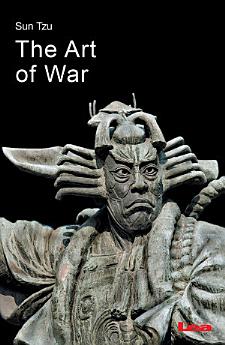The art of war
ธ.ค. 2015 · Ediciones LEA
4.2star
12 รีวิวreport
eBook
128
หน้า
reportคะแนนและรีวิวไม่ได้รับการตรวจสอบยืนยัน ดูข้อมูลเพิ่มเติม
เกี่ยวกับ eBook เล่มนี้
“If you know others and you know yourself, even in one hundred battles you will not find yourself at risk; if you do not know others, but you know yourself, you will win some battles and lose others; if you do not know others and you do not know yourself, you are at risk in every battle.” The Art of War is considered the oldest recorded treatise on military strategy. Written around the year 500 BC, this book uncovers the secrets of logic and armament, outlines the systems of authority, explains the keys to communication and discipline, differentiates the levels of military rank, and above all establishes absolutely innovative guidelines for strategy that are still used today. Its teachings go beyond the literal concept of “war.” For Sun Tzu, the successful person achieves his goals without devastating or humiliating others. The triumphant person prepares a tactic to achieve his goals, takes advantage of his opportunities, accepts his weaknesses, and recognizes his strengths. Those ideas led to the practice of applying the philosophy of The Art of War to questions of business and personal betterment. The words of Sun Tzu are read today as a manual for behaviors that help one defeat obstacles in various parts of life in order to achieve victory and exercise dominion over all who keep him from the path to success.
การให้คะแนนและรีวิว
4.2
12 รีวิว
ให้คะแนน eBook นี้
แสดงความเห็นของคุณให้เรารับรู้
ข้อมูลในการอ่าน
สมาร์ทโฟนและแท็บเล็ต
ติดตั้งแอป Google Play Books สำหรับ Android และ iPad/iPhone แอปจะซิงค์โดยอัตโนมัติกับบัญชีของคุณ และช่วยให้คุณอ่านแบบออนไลน์หรือออฟไลน์ได้ทุกที่
แล็ปท็อปและคอมพิวเตอร์
คุณฟังหนังสือเสียงที่ซื้อจาก Google Play โดยใช้เว็บเบราว์เซอร์ในคอมพิวเตอร์ได้
eReader และอุปกรณ์อื่นๆ
หากต้องการอ่านบนอุปกรณ์ e-ink เช่น Kobo eReader คุณจะต้องดาวน์โหลดและโอนไฟล์ไปยังอุปกรณ์ของคุณ โปรดทำตามวิธีการอย่างละเอียดในศูนย์ช่วยเหลือเพื่อโอนไฟล์ไปยัง eReader ที่รองรับ








